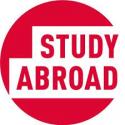Orientation and First Weeks
At La Sapienza, the orientation is called "Welcome Week". It is a week where you have the opportunity to meet other international students, tour the campus and your faculty building, and learn more about Rome. All the services for international students are in English, but you will get the opportunity to learn some valuable Italian terms. The welcome week is where I met most of my friends, and all it took was a little bit of confidence to speak! While it is not a mandatory event, it would be a shame not to attend.
Accommodation and Living
Since La Sapienza does not have dorms or student housing, it is up to the students to find their own apartment. Finding accommodation for myself was not too difficult, as I found a place well ahead of time through AirB&B. However, most of my friends did not search for somewhere to live until they arrived in Rome. Due to this, it sometimes took weeks (or even months) to secure a place to live. The university will provide partner associations that rent out apartments, like Sturent, DoveVivo, and Immobiliare. Overall, I would find an apartment ASAP to avoid the costly issue of living in a hotel for 6 months.
Day to Day
Going from a Canadian university to an Italian university will be quite the shock at first. La Sapienza is a public university, meaning that registering for classes is not needed. The only thing you need to register for is the end-of-term exam through a portal called InfoStud (equivalent to GoSFU). The main difference is that your whole final grade is based on the final exams (in 95% of cases). However, it does not mean you can't show up to class, as it is not normal for professors to record lectures or upload materials. If you don't go to class, you'll miss out on vital information for exams. Of course, some professors may assign an essay or two, but usually, the only graded assignment is the exam.
Another important thing to note is the class times. If your class beings at 10am, it will probably start at 10:15am. Rome is a very easy-going city, and there is not much pressure to be prompt. Professors will end their class on the hour, but take their time arriving to their next class for a short break.
Learning and Adaptation
Italy's grading system is not the same as in Canada. Basically, every exam is out of 30 points. 30 is 100%, and 18 is the passing mark, or 50%. The professor will decide the grade on the spot, and will tell you right away. If you did not pass on the first go, you will get three chances to take the exam!
Exams in the Italian university system are mainly oral. Meaning, you will sit down with your professor and discuss the material that was learned during the semester. Some professors may choose a written exam if there are too many students in the course, but the main method of examination is through an interview-type scenario. It will also depend on what subject you study, as math/science exams are most likely going to be written. I was in the Humanities department, and the professors valued the importance of discussion and opinion. The exam will last around 10-15 minutes, depending on how well you know the material. If the professor thinks you understand well, they won't keep you in there for long. Don't worry, the professor will tell the class ahead of time what specific topics they want you to study.
Cultural and Environmental Observations
Important things to know…
- People dress themselves well all the time, even for a trip for groceries!
- Tipping service workers (waiters, baristas, etc.) is not a thing in Italy
- Lineups do not exist: if you want to get on the bus, be brave!
- The bureaucracy might be stressful: make sure to leave plenty of extra time when going to the post office or immigration office.
- Water is not free, you will have to pay for it at a restaurant!
Social and Extracurricular Activities
Rome is a place where you will never be bored. There is tons of places to go! The municipal city of Rome itself is massive, but most of the tourist attractions are in the centre of the city. Some popular places to see are the Colosseum, Trevi Fountain, Pantheon, Piazza Venezia, Piazza Navona, Piazza del Popolo, and Villa Borghese. The best part is, they are all in walking distance from each other! There is also the Vatican City, which is architecturally magnificent. Other places just outside of Rome to visit are Villa D'Este (in Tivoli), Castelgandolfo, and Frascati. More pictures at the end of the presentation!
Italy is country that can fit into British Columbia three times, and travelling by train around Italy is very fast and inexpensive! The main train line is Trenitalia, and there is also Italo. During my time in Italy, I went to Florence, Milan, Turin, Venice, Positano, Naples, Pompeii, and Verona (just to name a few). There are also smaller towns, like Orvieto, San Gimignano, Supino, and Treviso which are quite beautiful. I absolutely suggest to make time for travelling around Italy, as you will have plenty of time for it!
Wrap Up
There are many great opportunities to meet other students, both Italian and international. There are two main associations, ESN (Erasmus Student Network) and ERA (Erasmus Roma Association). In these groups, you will be able to attend parties, dinners, tours, play sports, and attend other social events! I met many friends from these groups.
Note: "Erasmus" is a program where European university students can study in another EU country for very low cost, and most international students in Italy are either from Spain, France, Belgium, Germany, or other EU countries.






